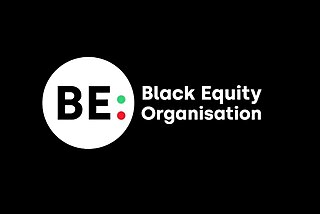History and evolution

The term was coined by legal reporters in the 1990s [1] and is generally considered to include the following five law firms: A&O Shearman, Clifford Chance, Freshfields Bruckhaus Deringer, Linklaters, and Slaughter and May. [2]

The Magic Circle has been termed a "journalistic device, coined by legal reporters in the wake of the break-up of its predecessor, the 'Club of Nine'". [1] The Club of Nine was an informal group of law firms that comprised Allen & Overy (now A&O Shearman), Clifford Chance, Freshfields (now Freshfields Bruckhaus Deringer), Herbert Smith (now Herbert Smith Freehills), Linklaters, Lovells (now Hogan Lovells), Norton Rose (now Norton Rose Fulbright), Slaughter and May, and Stephenson Harwood. [1] The members of the Club of Nine had an informal "no-poaching" agreement and the firm's senior partners would meet. [1] In 1996, Stephenson Harwood was asked to leave the Club of Nine due to its stagnant performance, and the Club was disbanded in 2000. [1]
In contrast to the Club of Nine, the Magic Circle is an informal grouping of law firms. Initially, the Magic Circle's membership was described by commentators as comprising the UK firms with strong corporate practices or international work. The term "Magic Circle" denoted that the firms within it had outperformed the other Club of Nine counterparts. [3] At the time, these firms were Allen & Overy, Clifford Chance, Freshfields Bruckhaus Deringer, Linklaters, and Slaughter and May. [1] Generally, the Magic Circle firms have among the highest earnings-per-partner and earnings-per-lawyer of UK-headquartered law firms. [4]
In 2004, Slaughter and May's then senior partner, Tim Clark, said: "It's a funny concept. I don't know where the term came from or who founded it. It's mainly something that comes up when we talk to journalists or they talk to us. We don't describe ourselves as a Magic Circle firm in any of our marketing material." [1] Linklaters' then head of corporate, David Cheyne, said: "City law firms years ago used to provide information to each other so they could keep in touch with what was going on, but that ended yonks ago... It seems to be a term to describe the leading City firms and there is some truth in it." [1] Then corporate partner at Herbert Smith Freehills and former investment banker Henry Raine said: "The phrase was coined by a legal magazine and referred to firms which were very strong in corporate or international work. At the time, Herbert Smith was languishing in the corporate stakes, and so was consigned to the outer darkness." [1]
In 2013, The Lawyer argued that Clifford Chance and Slaughter and May should no longer form part of the Magic Circle. It argued that Clifford Chance's profitability does not match the other Magic Circle firms, and that Slaughter and May operates a different (UK-focused) model, with revenue less than half of the other Magic Circle firms. [5] [6] In 2017 The Lawyer magazine stated that it no longer considers Slaughter and May to form part of the Magic Circle due to its lower revenues and UK domestic focus. [2] It wrote "Slaughters fits the silver circle bill in every respect. London-centric, sky-high PEP, top-tier work, an aura of prestige: Slaughter and May is far more like Macfarlanes than the Magic Circle quartet it is commonly lumped in with. To put it in the same category as Allen & Overy, Clifford Chance, Freshfields Bruckhaus Deringer and Linklaters would be inaccurate, and to say it is in a class of its own is frankly showing the firm too much deference." [7] [8] Nonetheless, other commentators still consider Slaughter and May to be a member of the Magic Circle. [9] [10] [11] [12]
Firms not included
Among the large firms not included in the term are Herbert Smith Freehills; Hogan Lovells; Norton Rose Fulbright; and Stephenson Harwood, which are less profitable.[ citation needed ] Also, at the time the term was coined, the corporate practice at Herbert Smith (as it was known pre-merger) was focused on privatisation work, which had dried up. Arguably for this reason, it was not included in the initial Magic Circle. [1]





